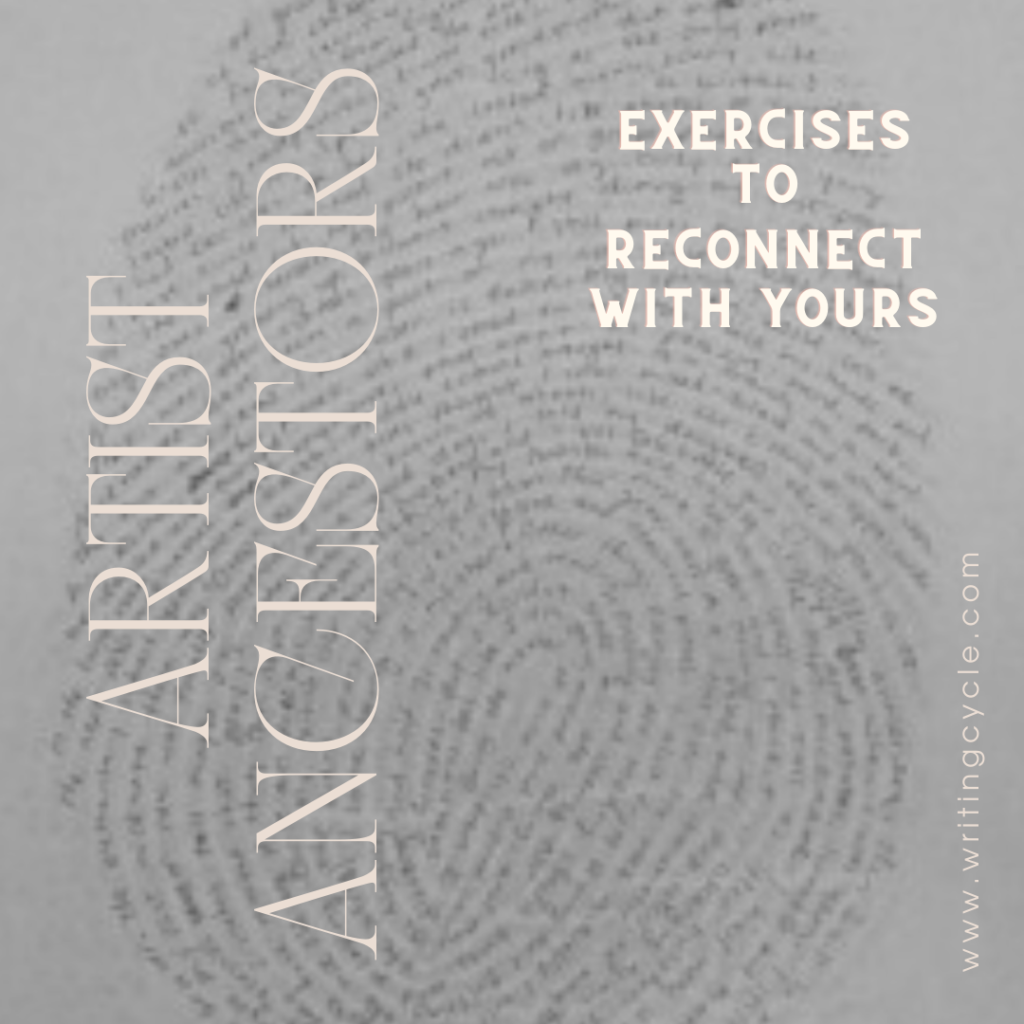Sensing or Intuitive: How to Write According to Your Personality Type

Nowhere do the differences between Sensing and Intuitive personalities show up as clearly as in how each prefers to use language. Since style of communication is considered one of the most significant of human differences, it’s worth examining how this component of personality affects the way we write, and to learn how to write a novel or memoir according to your personality type.
.
“Every secret of a writer’s soul, every experience of his life, every quality of his mind, is written large in his works.”
― Virginia Woolf
S vs. N: Which language do you speak?
The Myers-Briggs Type Indicator groups people by cognitive function; the function with the starkest contrast between groups is the one which reflects the way people view the world. Sensing (S) types―interested in facts―are masters of observation, while Intuitive (N) types―interested in frameworks―are powerfully introspective. When writing or speaking, sensors overwhelmingly prefer to send “signal messages – pointing to something present to the eye” whereas intuitive types prefer “symbol messages – bringing to mind something absent from view”. (Keirsey)
Both types have penned great books, and all literature features a range of concrete and abstract tool use. The genre of memoir, for example, requires equal parts detailed rendering of a true story and a distinct voice telling that story, selecting and ordering events for thematic resonance.
Yet why do some writers struggle with one tool more than another? Why do members of writing workshops seem to fall into two distinct groups? How can we resolve the paradox of writing itself: wherein language is abstract, yet literature exists to provide readers a sensory emotional experience?
How MBTI personality type affects creative writers . . .
SENSING (S) WRITERS:
- are detailed, empirical, and concrete.
- prefer plot-driven narratives.
- employ similes.
- feature characters speaking on-topic.
- tend to be explicit.
- draft in a linear fashion and prefer narratives unfold chronologically.
- favor writing scenes over writing passages of summary exposition.
- have an ear for the rhythms and sounds of language.
- beat writer’s block by incorporating sensory tools into writing rituals.
- usually finish projects they start.
- comprise around 75-80% of the population, with a large, built-in readership that shares their way of seeing the world.
In workshops, Sensing types fixate on the literal: What happened? Were police cars light or dark blue in Wichita in 1970? Does this paragraph progress logically line-to-line? They are wary of speculative leaps and abstractions.
“Heminway’s style strips language of figurative terms and utilizes primarily sensual descriptions. He artificially flattens his vocabulary, simplifying sentences to catch the tone of wartime disillusionment. ” (Keirsey)
S Challenges:
Sensing writing can feel “on the nose”; it may sacrifice inner yearnings and thematic observations for the sake of action. It lends itself to certain genres (such as crime writing, which necessitates meticulously-rendered facts) better than others (such as fantasy or sci-fi, wherein each world-building detail must also represent a larger political or philosophical construct). Popular Sensing novels may get wrongly dismissed as lacking depth, when powerful thematic elements are present, simply needing fuller realization.
Tip for Ss:
Trust that your unconscious mind has already planted key connections throughout your work―consciously work to harvest these.
 INTUITIVE (N) WRITERS:
INTUITIVE (N) WRITERS:
- are abstract, symbolic, and figurative.
- prefer concept-driven narratives and poetic images.
- employ metaphors and metonymy to connect disparate ideas.
- feature characters speaking sub-textually.
- tend to be implicit.
- draft in an non-linear fashion and remain comfortable with fractured timelines.
- use scenes as a jumping-off point to explore larger themes.
- use music to access the unconscious mind when drafting.
- “see” completed visions of projects in their minds, then work in intuitive leaps to realize these visions.
- jump from project to project, and struggle to finish what they start.
- comprise around 20% of the population, with distinct sensibilities that offer readers fresh perspectives. Their primary purpose is to immerse readers in a different consciousness.
In workshops, Intuitive writers move quickly from part to whole to evaluate the overall message: What larger question about the human experience does this story explore? Which opposing forces create tension in the text? They read between the lines to zone in on hidden patterns.
“Frankenstein is much more concerned with the meaning of characters’ experiences rather than simply the drama of their actions. The author’s principal object is less to produce an effect by means of the marvels of the narrations, than to open new trains and channels of thought.’” (Sampson)
N Challenges:
Intuitive writing can lack clarity, frustrating readers with temporal leaps or paragraphs that proceed thought-to-thought. They have trouble finding plot vehicles by which to explore the abstract ideas that have caught their interest. They may be more at ease with poetic symbols than with story architecture. Intuitive writers struggle in critique groups comprised predominantly of sensing types; they can grow discouraged when readers nitpick details while overlooking larger concepts.
Tip for Ns:
Don’t rely exclusively on Sensors to read your work in draft; ensure editors understand your intent before proffering line-level advice.
ESFJ v. ENFJ: Are You Mistyped?
WRITING TOOLS FOR EACH MYERS-BRIGGS TYPE
A mantra for using type in writing developed by John DiTiberio and George Jensen is: Write from your preferences, edit from your non-preferences.
SENSORS: Practice These Intuitive Exercises
.
Sensing writers who couple action with abstraction watch their work gain depth.
1. EMPHASIZE WHAT GOES UNSAID
Douglas Unger writes, “Dialogue in life is a transaction―a bartering of desires and intentions implied under the surface of literal communication. In writing, these implications should be sharpened.”
Look over the dialogue in your manuscript. How much consists of information or pleasantries? How often do characters speak on-topic? Learn how to write more compelling dialogue. Lines feels artificial when characters tell each other too much about themselves and their motivations.
Experiment with implicit dialogue:
- Employ pauses, silences, and tacit information so a reader’s imagination must work to fill in what’s missing.
- Allow characters to speak lines that are at odds with their thoughts, actions, or emotional states to build tension.
- Let characters tell a metaphorically-related story in response to a direct question, or use the language of one thing (such as music or sports) to talk of another (such as death or war).
2. CREATE CONNECTIONS
According to the writer Antonya Nelson, binaries are opposing forces that create tension: life/death, hope/despair, individuality/conformity, etc. The simplest way for Sensing types to sharpen connections in their work is to capitalize on binary forces already present.
In a narrative, the protagonist is usually torn between two worldviews, two lovers, two ways of life. As the plot thickens, she tacks from one to the other. In the end, she must choose the forces with which to align.
Take a stab at identifying binary forces present in your own work. Is each concretely represented? Are both sides of a binary present? You’ll be surprised how much tension can be created simply by sharpening opposing forces in a scene, even without action-heavy plot elements.
3. DEFINE YOUR PROTAGONIST’S YEARNING
A yearning is the deeper emotional motivation compelling your protagonist to pursue a concrete goal. Yearnings are revealed early (in musicals, they are frequently the second number; in novels, the second chapter; in stories, the second scene) and depict tension between what a character wants and what holds him back. In the film Thelma & Louise, the main characters’ goal is to escape to Mexico, but their initial yearning is for freedom from conventional gender roles. In the HBO show Hello, Ladies, the main character’s goal is to date a model―but his yearning is to appear successful―to “win at life”. In the novel Snow Falling on Cedars, the goal is a “not guilty” verdict, yet the yearning is to create connection between Japanese and white Americans living in the Pacific Northwest in the aftermath of WWII.
Intuitive Writer? These 5 Tips Will Optimize Your Process.
INTUITIVES: Steal These Sensing Skills
Intuitive writers who present ideas accessibly increase readership.
1. WRITE LINE-TO-LINE, NOT THOUGHT-TO-THOUGHT
Author Nancy Zafris insists, “Readers are not mind readers.” Writers may draft thought-to-thought, but readers read line-to-line; therefore, ensure lines at the beginning of scenes unfold in logical progression before making intuitive leaps. To do this, look to your opening paragraph: does each sentence proceed logically from the subject or object of the line preceding it? For example, if your opening line reads, “The mayor waved his hat in the air to signal the start of the parade”, your next line should focus on either the mayor or the parade. Your third line should continue to build upon whichever subject your selected for your second, and so on. Do not jump to something unrelated and assume readers will follow your train of thought.
2. EXPLORE A SETTING’S UTILITY
Intuitive writers understand the thematic potential of where scenes get set. They know a road trip represents a space where certain rules no longer apply, that a novel set in a boarding school or military unit may explore social hierarchies. But it’s equally vital to probe a locale’s utility: Does a setting offer useful inventory items? Does it expand or limit the range of action characters can take?
For example, a car creates tension by trapping people in close proximity. Social niceties and personal space requirements loosen. But how much can happen in a car? Likewise, if you write a love triangle involving siblings vying for the same partner, a public setting might keep tensions under control, allowing seduction or jealousy to seep out via subtext. But their childhood home may offer more revealing inventory. And private rooms, with walls between them, means a pass might be made. Someone might overhear a secret. A fight becomes likely. Always place characters where there is the greatest possibility of doing the most damage.
3. GIVE YOUR PROTAGONIST A GOAL
A challenge when writing fiction lies in unifying abstract concepts with concrete actions. Writing about a character who yearns to overcome his fear of failure is an idea―creating a situation in which he has the opportunity to do so becomes plot. Therefore, it’s important to give your protagonist a goal that is external and measurable.
A goal can be simple: in a play set in a TGI Friday’s, one employee gets tasked with convincing other employees to sing “Happy Birthday” to a customer. Whether or not she achieves this becomes the goal by which we measure her success or failure. Your protagonist may want to solve a mystery, win a prize, or arrive at a destination on time. While choice of goal arises from a character’s deeper yearning, it’s important to remember: yearning powers the inner journey, goal powers the plot.
“Personality is much more than autobiographical detail. It’s our way of processing the world, our way of being, and it cannot be
artificially removed from our creative activities.
― Zadie Smith
Already know you’re an Intuitive Writer?
Explore these intuitive writing tips to optimize your process.
Unsure if you’re an ESFJ or ENFJ?
To better understand the hidden differences between ENFJs and ESFJs as writers, read “Are You Mistyped?”
Ready to achieve writing goals?
If you’d like a book coach or intuitive editor to help you better connect with your personality type and process, reach out and let’s chat.
(For an in-depth look at personality types, read David Keirsey’s Please Understand Me II or visit http://mbti-notes.tumblr.com.)

Leave a Reply Cancel reply
Submit
LET's GET STARTED.
Hi, I'm Carol,
an Arizona-based editor who turns ideas into art. Need to get your book publication-ready?
Receive
Copyright © 2022 The Writing Cycle
Brand Photos By: Hayley Stall Matt Allen
Sign up for our quarterly newsletter and gain immediate access to free writing resources.
Stock Photos By: Styled Stock House


Fascinating post – I just put out a guide on Kindle to this topic, drawn from some magazine articles I once had published. I looked more at how MBTI changes how you approach writing as a process, I’ve yet to produce one on focussing content based on MBTI.
If anyone’s interested (and I’m allowed to plug my own work), my kindle book is called What Type of Writer are you?